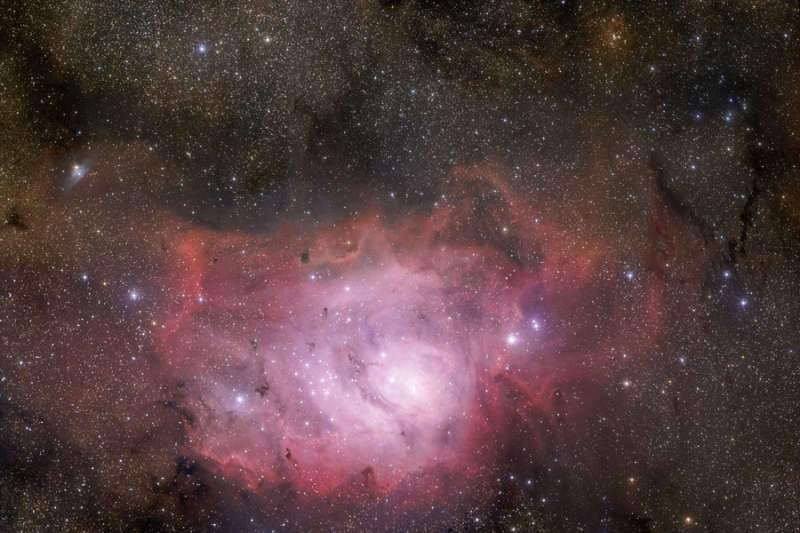 |
Астронет: Астрономическая картинка дня Туманность Лагуна при гигаувеличении http://www.astronet.ru/db/msg/1236377/eng |
Credit & Copyright: ESO
Explanation:
The large majestic
Lagoon Nebula
is home for many young stars and hot gas.
Spanning 100 light years across while lying only about 5000 light years distant, the
Lagoon Nebulae is so big and bright that
it can be
seen without a
telescope toward the
constellation of
Sagittarius.
Many bright stars are visible from
NGC 6530, an
open cluster that
formed in the nebula only several million years ago.
The greater nebula, also known as
M8 and NGC 6523,
is named "Lagoon" for the band of dust seen to the
left of the open cluster's center.
A bright knot of gas and dust in the
nebula's center is known as the
Hourglass Nebula.
The above picture is a newly released, digitally stitched panorama of
M8 taken as part of the
GigaGalaxy Zoom project
by the
Wide Field
Imager attached to the
MPG/ESO 2.2-meter Telescope at the
La Silla Observatory
in Chile.
The vista spans three times the diameter of the Moon, while the
highest resolution image version occupies over 350 million pixels.
Star formation continues in the
Lagoon Nebula as witnessed by the many
globules that exist there.
Authors & editors:
Robert Nemiroff
(MTU) &
Jerry Bonnell
(USRA)
NASA Web Site Statements, Warnings,
and Disclaimers
NASA Official: Jay Norris.
Specific
rights apply.
A service of:
LHEA at
NASA /
GSFC
& Michigan Tech. U.
